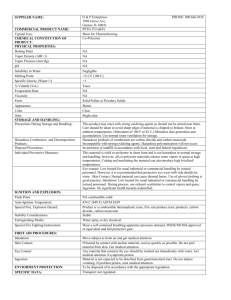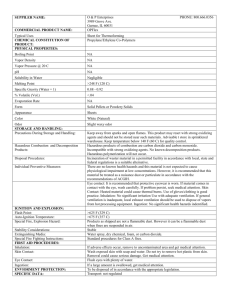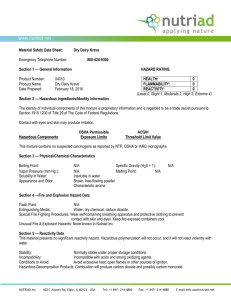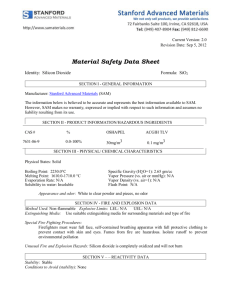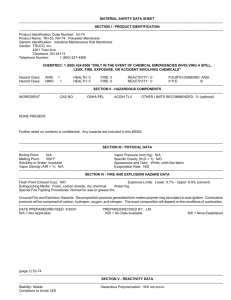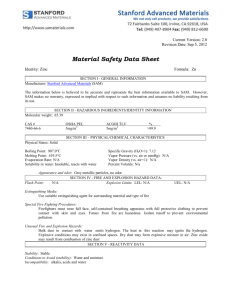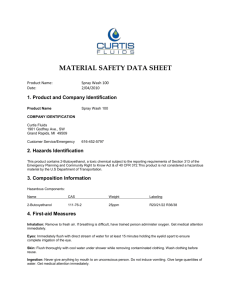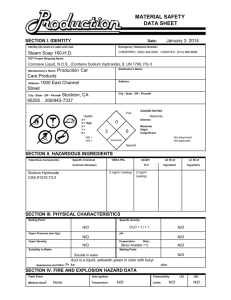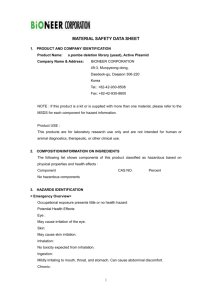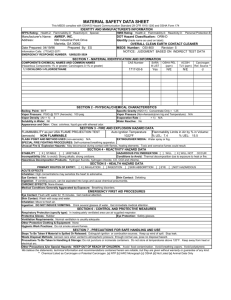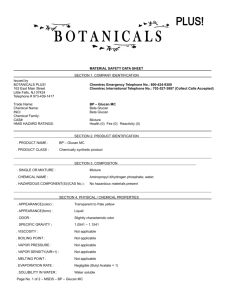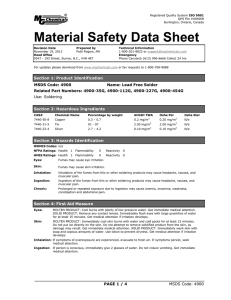MSDS PZ Shrink Film
advertisement
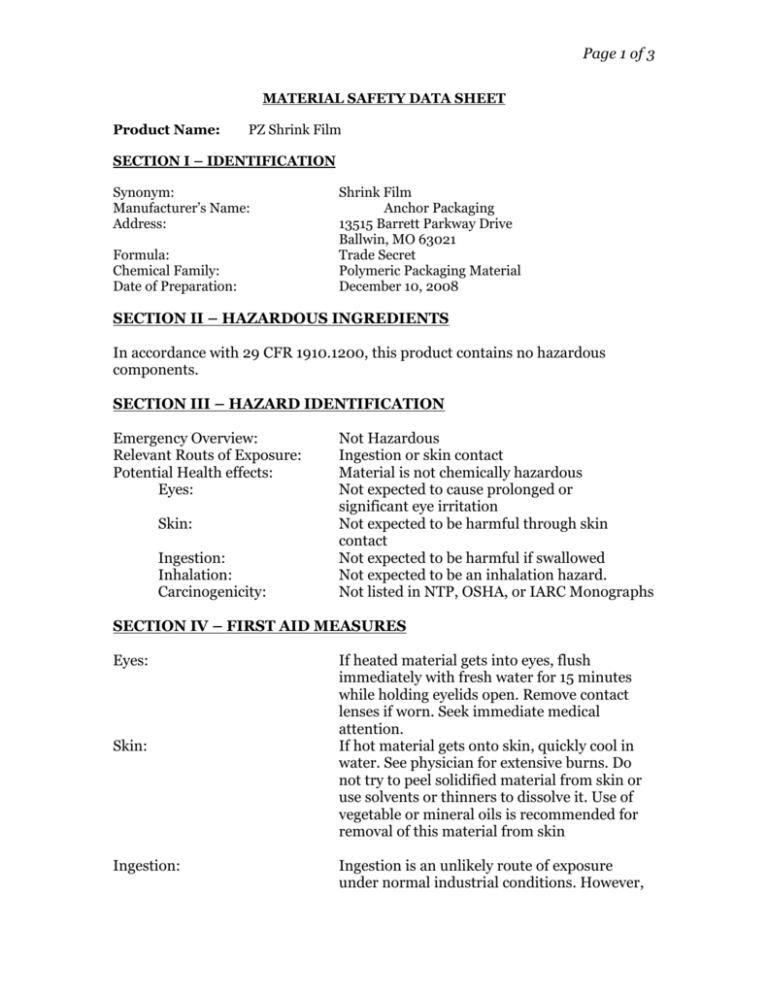
Page 1 of 3 MATERIAL SAFETY DATA SHEET Product Name: PZ Shrink Film SECTION I – IDENTIFICATION Synonym: Manufacturer’s Name: Address: Formula: Chemical Family: Date of Preparation: Shrink Film Anchor Packaging 13515 Barrett Parkway Drive Ballwin, MO 63021 Trade Secret Polymeric Packaging Material December 10, 2008 SECTION II – HAZARDOUS INGREDIENTS In accordance with 29 CFR 1910.1200, this product contains no hazardous components. SECTION III – HAZARD IDENTIFICATION Emergency Overview: Relevant Routs of Exposure: Potential Health effects: Eyes: Skin: Ingestion: Inhalation: Carcinogenicity: Not Hazardous Ingestion or skin contact Material is not chemically hazardous Not expected to cause prolonged or significant eye irritation Not expected to be harmful through skin contact Not expected to be harmful if swallowed Not expected to be an inhalation hazard. Not listed in NTP, OSHA, or IARC Monographs SECTION IV – FIRST AID MEASURES Eyes: Skin: Ingestion: If heated material gets into eyes, flush immediately with fresh water for 15 minutes while holding eyelids open. Remove contact lenses if worn. Seek immediate medical attention. If hot material gets onto skin, quickly cool in water. See physician for extensive burns. Do not try to peel solidified material from skin or use solvents or thinners to dissolve it. Use of vegetable or mineral oils is recommended for removal of this material from skin Ingestion is an unlikely route of exposure under normal industrial conditions. However, Page 2 of 3 Inhalation: if appreciable quantities of this product are accidentally swallowed, seek medical attention. If breathing difficulties develop, move affected person away from source of exposure into fresh air. Seek medical attention. SECTION V – FIRE FIGHTING PROCEDURES Flammable Limits in Air (% by Volume): Flash Point: Auto ignition Temperature: Extinguishing Media: N/A Not Available Not Available Water, Carbon Dioxide, Foam, Fog, Dry Chemical Use self-contained breathing apparatus Not Available Fire Fighting Instructions: Flammability Classification: Known or Anticipated Hazardous Products of Combustion: Hydrocarbon oxidation products, including carbon dioxide, carbon monoxide, organic acids, aldehydes, alcohols. **Additional Information: This material will burn although it is not easily ignited. SECTION VI – ACCIDENTAL RELEASE MEASURES Accidental Release Measures: Personal Precautions: Environmental Precautions: Sweep spilled material into a disposable container. If spilled material is molten, allow it to cool and solidify before proceeding with disposal methods. Allow heated material to cool prior to cleanup. Avoid contaminating soil or releasing this material into sewage and drainage systems and bodies of water. Methods for Cleanup: No special methods identified. Spill: Spilled material may create a slip hazard. SECTION VII – HANDLING AND STORAGE Handling: Storage: Avoid contact with melted material. None SECTION VIII – EXPOSURE CONTROLS & PERSONAL PROTECTION Ventilation Requirements: Provide adequate ventilation or local exhaust to remove fumes when performing high- Page 3 of 3 Eye/Face Protection: Skin Protection: Respiratory Protection: Work Hygienic Practice: temperature processing such as heat sealing or hot-wire cutting Wear eye/face protection appropriate for hazard Wear suitable gloves during processing If smoke or fumes are generated during processing, use adequate ventilation or wear appropriate approved respiratory protection (not normally required). Avoid direct contact with heated material. SECTION IX – PHYSICAL & CHEMICAL PROPERTIES Appearance: Melting Point: Physical State: Reactivity in Water: Softening Point: Solubility in Water: Specific Gravity or Density (Water=1): Translucent and odorless 100-115 C° Solid Negligible 98° C Insoluble .90 - .95 SECTION X – STABILITY AND REACTIVITY Stability: Incompatibility with Other Materials: Hazardous Decomposition Products: Material is stable None Known Hydrocarbon oxidation products, including carbon dioxide, carbon monoxide, organic acids, aldehydes and alcohols, may be formed during combustion. SECTION XI – DISPOSAL CONSIDERATIONS Incineration or landfill in compliance with federal, state and local laws.
